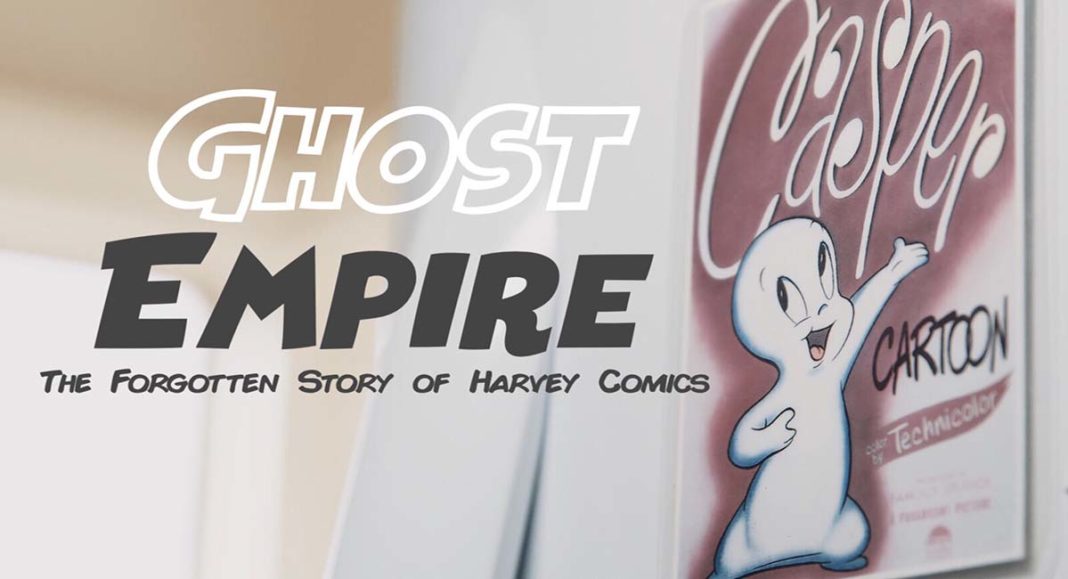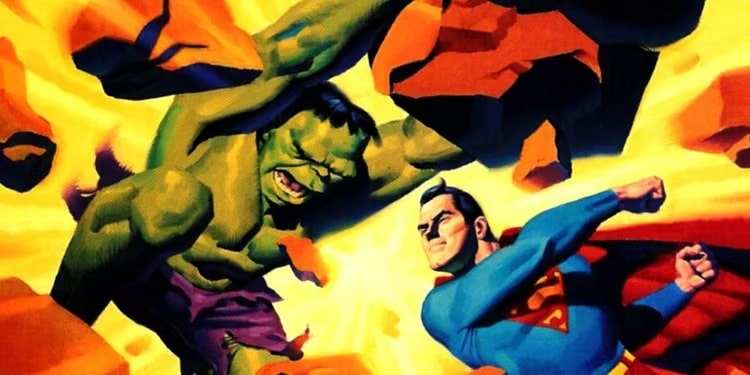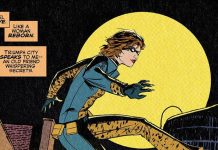In the early days of comic books there was a publisher known as Harvey Comics. With its signature Joker-in-a-Box mascot adorning every cover, the company was founded in 1939 by Alfred Harvey, who then brought on his brothers Robert B. and Leon shortly thereafter. By the 1950s, their character list included licensed, mega-popular names such as Little Audrey, Casper the Friendly Ghost, Baby Huey, Richie Rich, and many more.
Unfortunately, the company that was once a giant in the industry (and a major player in creating the comic world as we know it today) was sold in 1989, with its properties moving to other publishers and entertainment networks. The new Harvey Comics Entertainment was then sold in 2001 to Classic Media. Alfred’s grandnephew, Jonny Harvey, recently decided to explore his family’s legacy and uncover the highs and lows that the publisher faced in its more than 50 years of creating memorable, lovable characters and stories.
Harvey has since begun shooting a docuseries entitled Ghost Empire: The Forgotten Story of Harvey Comics to chronicle his finds, which includes interviews with members of the Harvey family, former employees, historians, animators, artists, editors like Tom DeFalco and Paul Levitz, and other experts in the industry (our very own Editor-in-Chief Heidi MacDonald is in it!) Patrick Meaney (Neil Gaiman: Dream Dangerously and The Image Revolution) is also attached as a Creative Producer.
Harvey chatted with the Beat about the project and what it was like to unlock some of his family’s famous history.
Deanna Destito: What sparked your interest in doing this documentary about Harvey Comics now?
Jonny Harvey: I never had a chance to meet my grandfather, Leon. He died before I was born. When my grandmother told me that my family owned a comic book company that had Casper the Friendly Ghost and Richie Rich, I was always curious as to why we didn’t own the company anymore. After graduating from college, I decided to discover more about my grandfather and learn the truth about the unfortunate events that led to this great company’s demise.
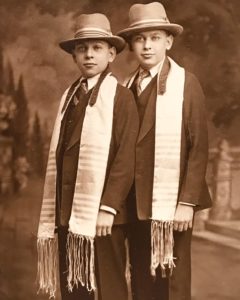
We’re still working on the film and figuring out its shape, but it’s basically the story of my grand-uncle Alfred, who grew up in a Jewish immigrant family in New York in the 1920s, and was right there working with Joe Simon and Jack Kirby at the dawn of the comic book industry. We follow him as he teams with his brothers to build a family business, Harvey Comics, and see it become one of the dominant publishers in the industry, and ultimately face the challenges that come with running a family business over changing times. We get to see a bit of every part of comic book history from the founding to the present, and it’s coming from the unique perspective of someone in the family.
Destito: How did the rise and fall of the company affect your family and how do current family members feel about the history?
Harvey: It was fascinating to look into the family history and see the struggles that ultimately led to selling the company. When I tell people about it, a lot of them say it’s like the comic book version of HBO’s Succession. Hopefully not as vicious as that conflict, but it was pretty intense as I understand. My family is very proud of what the Harvey name accomplished and the legacy it left behind. Everybody knows Casper the Friendly Ghost. Everybody knows Richie Rich. These characters influenced generations of children and adults for decades. There were great times at the company, but unfortunately, the end wasn’t a positive experience, to say the least, and that left a bitter feeling with some family members years after the Harvey family sold the company. But overall, the family shares an immense pride for how Harvey and its characters impacted millions of people around the world.
Destito: What is something you uncovered during the process that you hadn’t known before?
Harvey: I am a child born in the mid-90s, so I didn’t grow up reading comic books. It just wasn’t the medium of entertainment it was for the Baby Boom children or other generations before me. Everyone knew Casper, mostly from the 1995 Spielberg movie, but until researching the company, I had no idea to the extent that Casper influenced millions of lives across the world. That’s a very profound realization, that my grandfather, his brothers, and those that worked at the company were able to impact millions of children’s lives through good-natured cartoon characters.
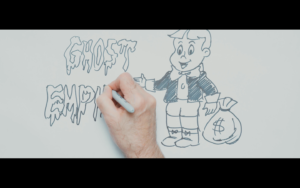
Destito: Why is it important for current comic readers to know how important Harvey was or is to the industry?
Harvey: It was amazing to talk with people like Sid Jacobsen and Stan Harfenist who were right there in the early days of Harvey when the comic industry was being built. Unfortunately, many of these legends are no longer with us, so it’s important to tell this story now while as many of the people who were there can contribute. The comic book world was a small tight-knit community, and Harvey was right in the middle of the precedent the Comic Book Godfathers (as I like to call them) set. Harvey came together with the heads of Marvel (back then, Timely), DC, and Archie to form the Comic Book Magazine Association of America, and my grandfather was the Treasurer of that institution. Together, they founded the Comic Code Authority and dictated what content was appropriate for children to consume, and Harvey’s content was geared toward teaching children a sense of morality, a sense of what is wrong and right, lessons of friendship and mediation. When we look at how media in America has evolved throughout the decades, it’s important to know that Harvey had a part in setting that precedent.
Destito: If you were to revive Harvey Comics today, what would your angle be? What types of books, target audience, etc.?
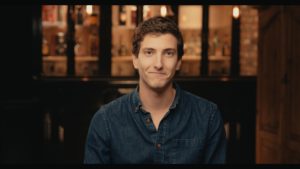
Harvey: Harvey has a tall mountain to climb. Casper merchandise isn’t sold much in stores, and the characters aren’t around in the way that they were decades ago. But the Harvey characters still resonate with children, so if I were to revive the company today I’d look to reach those kids in the way that they consume content today.
Children of the ‘40s saw Casper and Little Audrey as short films in the theater. Children of the ‘50s experienced these characters through comic books. Children of the ‘60s and ‘70s got to see these comic book characters on TV, and the kids of the ‘90s experienced Casper and Richie through big-budget movies.
Children today are growing up in a world with smartphones at their fingertips, which can be a powerful tool. Media, in all forms, has an immense impact on forming a child’s worldview. The vast amount of content at our fingertips is scary for a parent today, as their kids can stumble upon anything. But it also provides a great opportunity to reach kids in their homes and influence their worldview in a positive way.
As Archie did with Riverdale, Harvey could make characters like Richie Rich more mature and face problems that someone in his position would face today, to resonate with children of today, but they need to stay true to the characters’ identities. The main Harvey characters that people know, at their core, are all misfits. Whether that’s Casper, Wendy, Baby Huey, Hot Stuff, Little Audrey, Little Dot, or Little Lotta, they all just want to be themselves and spend time with friends. Every kid wants to make a friend. Every kid feels different from their peers and wants to fit in. Richie Rich has all the money in the world, but with that comes great responsibility. He chooses to use his money for good, to solve problems, to help his friends, and stand up to bullies. It’s important to teach any generation to feel empowered to be their best selves and learn lessons of friendship and morality, and I think the young parents of today would want their kids learning lessons that Harvey and its characters teach.
As of this writing Ghost Empire: The Forgotten Story of Harvey Comics does not have a release date yet, but a trailer of the docuseries can be viewed here.
Correction: The original version of this piece gave an incorrect timeline of the company and stated Marvel took on a few properties, which was incorrect. The piece has been updated accordingly.


